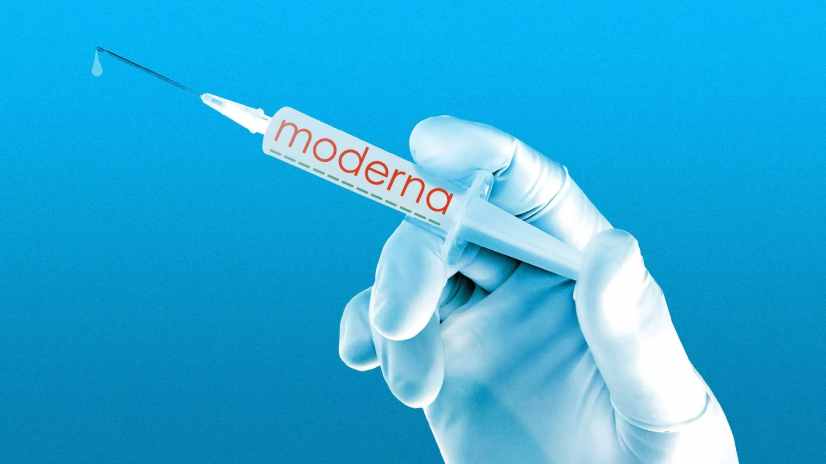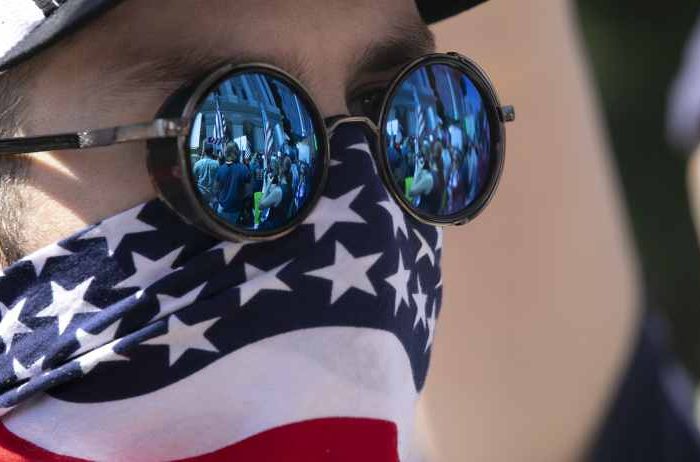BREAKING: Moderna vaccine produced antibodies in all patients tested, New England Journal of Medicine study shows

Earlier today, we reported that Moderna will begin late-stage coronavirus vaccine trial on July 27, according to ClinicalTrials.gov. Now, we have another piece of good news about Moderna mRNA-1273 vaccine. Federal researchers said Tuesday that Moderna’s Covid-19 vaccine produced antibodies to the coronavirus in all patients tested in an initial safety trial.
According to newly released data published Tuesday in the New England Journal of Medicine, Moderna vaccine produced neutralizing antibodies in all 45 patients in its early stage human trial, according to newly released data. The neutralizing antibody levels produced were equivalent to the upper half of what’s seen in patients who get infected with the virus and recover.
All 45 patients produced neutralizing antibodies, which scientists believe is important for building immunity and provided more promising data that the vaccine may give some protection against the coronavirus. In the trial, each participant received a 25, 100 or 250 microgram dose, with 15 people in each dose group. Participants received two doses of the potential vaccine.
“These Phase 1 data demonstrate that vaccination with mRNA-1273 elicits a robust immune response across all dose levels and clearly support the choice of 100 µg in a prime and boost regimen as the optimal dose for the Phase 3 study,” Moderna’s chief medical officer, Tal Zaks, said in a statement. “We look forward to beginning our Phase 3 study of mRNA-1273 this month to demonstrate our vaccine’s ability to significantly reduce the risk of COVID-19 disease.”
While stimulating production of neutralizing antibodies doesn’t prove a vaccine will be effective, it’s considered an important early step in testing. Meanwhile, the side effects reported weren’t severe enough in the majority of patients to preclude further testing, according to the report by researchers from the National Institute of Allergy and Infectious Diseases.
Below is the excerpt of the study.
BACKGROUND
The severe acute respiratory syndrome coronavirus 2 (SARS-CoV-2) emerged in late 2019 and spread globally, prompting an international effort to accelerate development of a vaccine. The candidate vaccine mRNA-1273 encodes the stabilized prefusion SARS-CoV-2 spike protein.METHODS
We conducted a phase 1, dose-escalation, open-label trial including 45 healthy adults, 18 to 55 years of age, who received two vaccinations, 28 days apart, with mRNA-1273 in a dose of 25 μg, 100 μg, or 250 μg. There were 15 participants in each dose group.RESULTS
After the first vaccination, antibody responses were higher with higher dose (day 29 enzyme-linked immunosorbent assay anti–S-2P antibody geometric mean titer [GMT], 40,227 in the 25-μg group, 109,209 in the 100-μg group, and 213,526 in the 250-μg group). After the second vaccination, the titers increased (day 57 GMT, 299,751, 782,719, and 1,192,154, respectively). After the second vaccination, serum-neutralizing activity was detected by two methods in all participants evaluated, with values generally similar to those in the upper half of the distribution of a panel of control convalescent serum specimens. Solicited adverse events that occurred in more than half the participants included fatigue, chills, headache, myalgia, and pain at the injection site. Systemic adverse events were more common after the second vaccination, particularly with the highest dose, and three participants (21%) in the 250-μg dose group reported one or more severe adverse events.CONCLUSIONS
The mRNA-1273 vaccine induced anti–SARS-CoV-2 immune responses in all participants, and no trial-limiting safety concerns were identified. These findings support further development of this vaccine. (Funded by the National Institute of Allergy and Infectious Diseases and others; mRNA-1273 ClinicalTrials.gov number, NCT04283461. opens in new tab).

